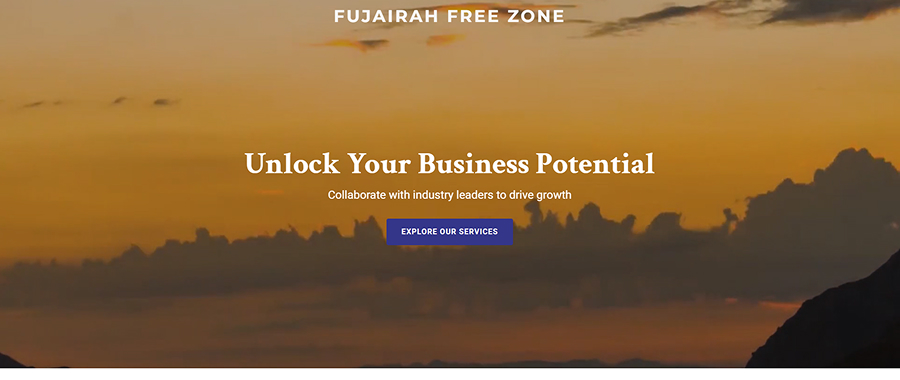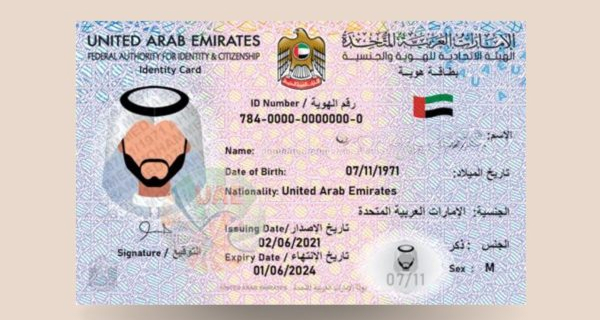Looking for the most cost-effective free zone to register your UAE company? Fujairah Free Zone (FFZ) might be your best choice.
Not every entrepreneur needs the skyscrapers of Dubai or the media vibe of Creative City. Some just want a place where trading is smooth, warehouses are ready, and customs don’t become a nightmare. That’s exactly what Fujairah Free Zone has been offering since 1987.
Its edge is location. Sitting right next to Fujairah Port with direct access to the Indian Ocean, it gives importers and exporters a shortcut into global markets — without the bottlenecks of the Gulf. Add in straightforward setup rules, competitive packages, and tax perks, and you’ve got a zone built for people who actually move goods, not just paperwork.
Why Choose Fujairah Free Zone for Business Setup?
Some free zones sell you a dream with glass towers and glossy brochures. Fujairah Free Zone doesn’t bother with that. Its pitch is simpler: if you need to trade, store, or manufacture goods, this is where you do it cheaply and efficiently.
Location is its ace. Sitting right next to Fujairah Port, the zone gives companies direct access to the Indian Ocean — no detours through the Strait of Hormuz, no extra shipping headaches. For importers and exporters, that detail alone can cut time and cost.
Flexibility is another win. You can start small with just an office and a trading license, or scale up to full warehouses, land plots, and industrial facilities. The paperwork is straightforward, and yes — most of the registration can now be done remotely with the help of licensed agents.

About Fujairah Free Zone
This isn’t a new experiment. Fujairah Free Zone was launched back in 1987, making it one of the UAE’s oldest government-backed free zones. Instead of chasing media or digital startups, it’s always been rooted in logistics and trade. That positioning, tied directly to the port, is what gives it staying power.
Business Activities Allowed in Fujairah Free Zone
Here you’ll find a wide license range: trading, import/export, warehousing, manufacturing, and consultancy. Most activities get approved quickly. Heavily regulated fields — like pharma or finance — take longer. What sets FFZ apart is the mix: you can hold an office, a warehouse, and even industrial land under the same umbrella, something service-focused zones can’t offer.
Step-by-Step Fujairah Free Zone Company Formation and Registration
The first decision in Fujairah Free Zone is choosing your company’s legal form. The authority offers three main structures:
- Free Zone Establishment (FZE): a company with a single shareholder, either an individual or a corporate body. It has independent legal status and limited liability.
- Free Zone Company (FZC): designed for two to fifty shareholders. Like an FZE, it carries limited liability and is treated as a separate legal entity.
- Branch: an extension of an existing UAE or foreign company. It does not create a new legal entity; the parent company remains fully liable.
Once you decide the structure, the rest of the process follows a clear path:
- Submit the application and reserve a trade name.You or your agent provides details of the proposed activity, shareholders, and directors.
- Prepare and attach documents.Individuals submit passport copies, proof of address, and photographs. Corporate shareholders or branches must also provide incorporation papers, Memorandum and Articles of Association, a Share Register, and a board resolution.
- Authority review and facility choice.The free zone reviews your file while you confirm what space you’ll lease — a flexi-desk, office, warehouse, or land. The facility later determines your visa quota.
- Incorporation and license issuance.Once approved, the authority issues your trade license and corporate documents. Branches receive an operating license tied to the parent company.
- Immigration setup and visas.After licensing, you open an establishment card (immigration file) and apply for visas. Each step follows standard UAE procedure: entry permit, medical tests, Emirates ID, and stamping.
Timeline: Straightforward applications often finish in 5–7 working days. Industrial or regulated activities can take longer depending on approvals.
Required Documents and Timeline
Fujairah Free Zone keeps the paperwork fairly simple. For individual shareholders, you’ll need the official application form, a short business plan describing your activity, passport copies of all shareholders and the appointed manager or director, plus specimen signatures.
If a company is the shareholder, the file expands: add the certificate of incorporation or existing trade licence, the Memorandum and Articles of Association (MOA/AOA), a Share Register, and a board resolution authorising the new setup and signatories.
In line with UAE law, every applicant must also submit Ultimate Beneficial Owner (UBO) details.

Want to learn more about UAE business setup services?
Remote Registration Option
Not based in the UAE? No problem. Fujairah Free Zone allows remote company formation through licensed agents. You provide scanned copies of your documents, complete identity verification by video call (or through a notarized power of attorney), and the rest is handled locally on your behalf.
The license is sent online, but paper copies can be sent later if needed. Visa handling, e-channel registration, and ID paperwork can all be taken care of without you having to fly in right away.

This choice is a game-changer for many foreign business owners. You don't have to spend weeks on travel and planning; you can have a fully registered UAE company and work from anywhere in the world.
Types of Licenses and Costs in Fujairah Free Zone
Licensing in Fujairah Free Zone is simple and practical, but still broad enough to cover different kinds of businesses. The main options include:
- Trading or General Trading License: issued to firms that bring in goods, export them, re-export, or handle distribution. A “General Trading” option is also available if you want to handle a wider mix of products under one license.
- Industrial License – for businesses involved in manufacturing, assembly, or processing. These are usually paired with warehouse or land facilities inside the zone.
- Service / Professional License – for consultancy, IT, management, and other service-oriented activities.
- E-Commerce License – for firms managing online trading activities.
Facilities like warehouses and industrial land plots are not separate licenses on their own — instead, they are leased alongside the chosen license type.
As for costs, FFZ structures its pricing into packages (license + facility + visa quota). Exact fees depend on the license activity and the size of office, warehouse, or land you lease, but the zone is generally more cost-effective than Dubai-based free zones.
Visa Packages and Pricing Breakdown
In Fujairah Free Zone, visa quotas are tied directly to the type of facility you lease rather than fixed bundles.
- Flexi-desk setups usually allow for one residency visa, making them ideal for solo operators or consultants.
- Small offices can support two to three visas, enough for a founder plus a small team.
- Larger offices, warehouses, or land plots come with higher visa allowances. The quota scales with the size and intended use of the facility.
On top of the license and facility cost, companies should budget for:
- E-channel registration – a one-time setup fee required to access UAE immigration services.
- Visa issuance expenses – including entry permit, medical tests, Emirates ID, and stamping.
- Additional visas – available if you expand facilities and increase your quota.
What makes it clear is that your visa quota depends directly on the space you lease. That way, you already know how many visas you can get and what the yearly renewals will look like — no surprises later.
Fujairah Free Zone Corporate Tax, VAT, and Duties
Taxes in the UAE changed in 2023, and every entrepreneur setting up in Fujairah Free Zone needs to understand the rules clearly.
The headline benefit still stands: 0% corporate tax on qualifying income. That means if your company earns profits through activities inside the free zone or through business with clients outside the UAE, you don’t pay corporate tax. But under the UAE’s new law, profits above AED 375,000 are generally taxed at 9%, unless they meet the qualifying income test. Companies dealing directly with the UAE mainland without an approved distributor risk losing that exemption.
Not every sector gets the benefit. Oil and gas, and regulated banking activities, remain excluded and fall under their own tax regimes.
Businesses in the Fujairah Free Zone don't have to pay customs duties on goods they bring in or send out. Goods are only subject to duties if they are sold on the mainland of the UAE.
Many owners trust Consulting.ae to take care of VAT registration, tax filings, and structuring so they stay in line and don't make mistakes that cost a lot of money. This way, you can enjoy the benefits of the free zone without worrying about the details.
Fujairah Free Zone Company Formation: Who Should (and Shouldn’t) Choose This Free Zone?
Choosing the right free zone isn’t about glossy marketing — it’s about fit. Fujairah Free Zone has a clear profile: it's good for business and trade, but not so good for individuals. This is how it works.
Best suited for (YES):
- Trading companies and import/export firms. FFZ sits on Fujairah Port with direct Indian Ocean access, making it a natural hub for global trade.
- Manufacturers and industrial operators. The zone has buildings and plots of land that can be used for storage, assembly, and production.
- Logistics and distribution companies. Duty-free imports and re-exports, plus warehousing options, make it attractive for storage and re-shipment.
- Service and consultancy firms. FFZ does issue service licenses, and the costs are typically lower than in Dubai-based zones.
Less suitable for (NO):
- Freelancers or one-person businesses. While possible, Creative City Free Zone is usually more affordable and tailored for individuals.
- Mainland retail businesses. Free zone licenses cannot sell directly to UAE consumers without a local distributor or mainland partner.
- Highly regulated sectors. Finance, insurance, and pharmaceuticals need approvals beyond what FFZ alone can provide.
- Applicants from restricted nationalities. As in all UAE free zones, approvals are subject to compliance checks, and some nationalities face restrictions.
In short: FFZ shines for traders, manufacturers, and logistics-driven companies. If you’re a freelancer or purely service-based, another zone may suit you better.

Conclusion
Fujairah Free Zone isn’t trying to be flashy — and that’s exactly why it works for so many businesses. Since 1987, it’s been the place companies go when they actually need to move goods, run warehouses, or build something real, not just rent a desk in a tower. The direct link to Fujairah Port and the Indian Ocean is more than a nice detail — it’s the reason traders and manufacturers choose it over more expensive zones inland.
What I like about Fujairah Free Zone is its range. You can start lean with a simple office license, or go big with land and industrial facilities. Either way, the costs stay more manageable than in the big-name free zones further west. For companies that care about margins, that matters.
Of course, this zone isn’t built for freelancers or for selling directly on the UAE high street. But if your business is trade, logistics, industry, or even services with regional reach, you’ll find it a solid match.
If this sounds like the direction you want to take, don’t overcomplicate it. Talk to a consultant. Let them handle the paperwork and compliance, so you can focus on building the business you actually came here to run.
Yes. That’s one of its strongest points. Most of the process can be handled remotely through licensed agents. You send the documents, identity is verified online or through a power of attorney, and your license is issued. Many investors never step on a plane until they actually want to.
The authority itself asks for full payment. But some agents do allow installments as part of their own service. If spreading costs matters, it’s worth asking upfront before you commit.
Absolutely. Free zone companies can import, export, and trade internationally. The only limit is selling directly inside the UAE mainland — that requires a distributor or a mainland license.
Most activities — trading, warehousing, services — are licensed directly. Heavily regulated fields like pharmaceuticals, finance, or certain industrial projects may need extra clearance.
